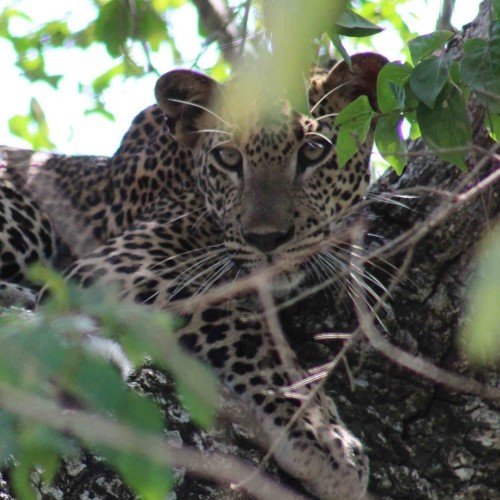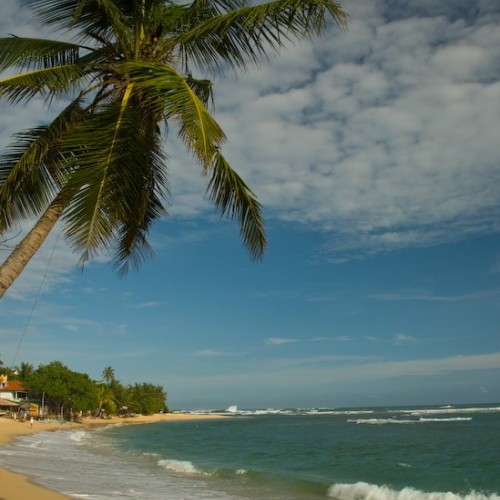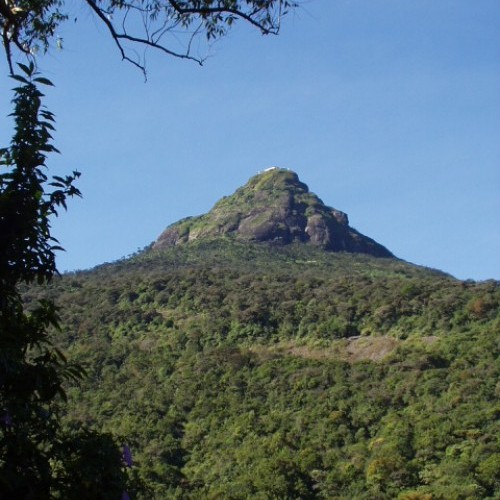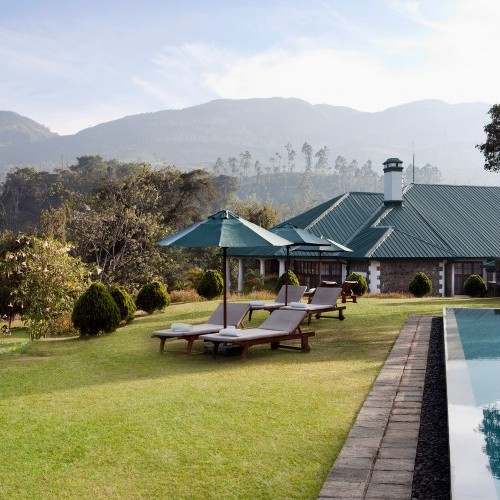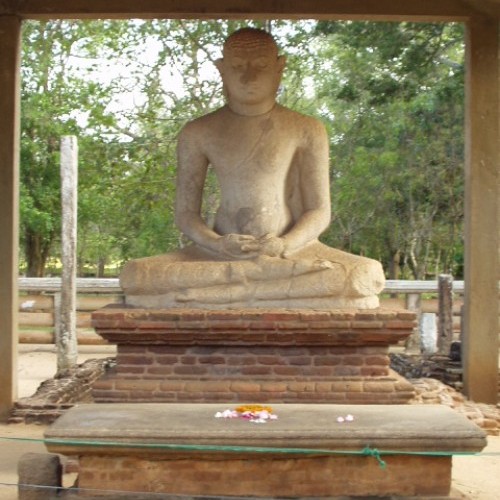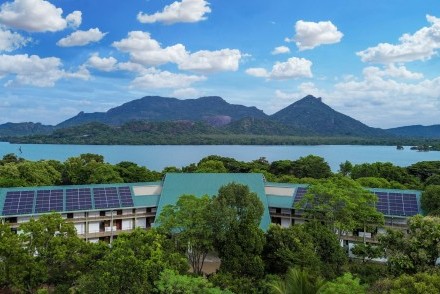Travellers’ Code of Conduct
Advice on Best Practice in Travelling Responsibly
Tikalanka follows its own strict guidelines of best practice regarding responsible and sustainable travel, and also encourages travellers to be aware of their impact on the environment and people. We encourage travellers to prepare well for their holiday in Sri Lanka and Maldives by consulting our website and other relevant sources of information, which will help enhance their own travel experience.
Background
Tikalanka began after a chance meeting in Kandy! John Beswetherick met S.G. Pathirana (Pathi) whilst travelling in Sri Lanka in 1999. Immediately becoming close friends, John and Pathi decided to go into business together as JB Pathi Tours, buying a minibus and starting tours of the island in February 2000. Since then, growing interest in visiting Sri Lanka encouraged JB Pathi Tours to expand its business with the founding of the online tailor-made travel specialist Tikalanka. We have since extended our reach to Maldives.
Information for travellers
Tikalanka has developed a comprehensive website at http://www.tikalanka.com that acts as an important and extensive information resource. The history, geography and ecology of Sri Lanka and Maldives are discussed in detail, as are current social and political issues. Other useful travel information covers what essential items to take on holiday, health advice, conduct and behaviour, and the social and environmental impact of travelling to Sri Lanka and Maldives.
To learn about the political situation and other related issues in Sri Lanka and Maldives, travellers are advised to consult the Foreign and Commonwealth Office’s ‘Know Before You Go’ website at https://www.gov.uk/knowbeforeyougo.
Conduct and behaviour
- Sri Lankans attach a lot of importance to polite behaviour and proper appearance.
- Although there are many minor conflicts every day, you will seldom witness a full-scale public argument. Anyone who cannot control themselves in public loses face. A loud-mouthed tourist complaining about minor difficulties and dressed sloppily is a figure of fun in Sri Lanka and this may lead to a certain degree of secret scorn for such foreigners.
- Cleanliness and modesty are appreciated even in informal situations.
- Nudity and topless bathing are prohibited and heavy fines can be imposed.
- Displays of intimacy are not considered suitable in public places and will probably draw unwanted attention.
- Women in rural areas do not normally shake hands with men, as this form of contact is not traditionally acceptable between acquaintances.
- Use your right hand for giving, taking, eating or shaking hands as the left is considered to be unclean.
Visiting religious sites
- Visitors to Buddhist and Hindu temples are welcome although the shrines of Hindu temples are normally closed to non-Hindus. Visitors should be dressed decently in long skirts or trousers – shorts, singlets and swimwear are not suitable. Shoes should be left at the entrance and heads should be uncovered.
- Do not attempt to shake hands or be photographed with Buddhist monks or to pose for photos with statues of the Buddha or other deities and paintings.
- Remember that monks are not permitted to touch money so donations should be put in temple offering boxes. Monks renounce all material possessions and so live on offerings.
- Visitors may offer flowers at the feet of the Buddha, but should remember never to point the soles of their feet towards the Buddha, as this is considered the height of impropriety. When sitting or kneeling in Buddhist temples, it is best to sit in the ‘mermaid’ position, with your legs tucked beneath your body.
Tipping and begging
- Obtaining gratuities is a way of life in Sri Lanka. Having said that, many of the staff in the tourist trade do not get a realistic wage and have to rely on tips, or a share of the service charge, for their basic income. Although a 10% service charge is added to room rates and meals at virtually all hotels, guesthouses and restaurants, much of this is absorbed by the establishment and does not get fairly distributed amongst the staff.
- Begging is part of everyday life throughout Asia, and while some cases are genuine there are others who seek to take advantage. Tourists are easily categorised as having plenty of money, so you can expect to attract a fair share of beggars.
- The sight of beggars near religious sites can be very disturbing. A coin to one child or a destitute woman on the street can lead to demands from a large number before long. Many Sri Lankans give alms to street beggars as a means of gaining spiritual merit or out of a sense of duty but the sum is often very small – a rupee or two. How you deal with beggars is a matter of personal choice but it is perhaps better to give to a recognised charity than to make largely ineffectual handouts to individuals. Some people find it appropriate to give food to beggars rather than money.
- Children sometimes offer to do a ‘job’ for you such as call a taxi, show you the way or pose for a photograph. You may want to give a coin out of appreciation, however, it is not helpful to hand out sweets ("bon bons"), "school pens" and money indiscriminately to open palmed children who tag onto any foreigners as this encourages begging.
- A pledge to donate a part of your holiday budget to a local charity can be an effective formula for ‘giving’. Some visitors like to support self-help local co-operatives, orphanages, disabled or disadvantaged groups, or international charities like Oxfam or Save the Children which work with local partners, by either making a donation or by buying their products.
Bargaining
- In some private shops and most markets bargaining is normal and expected but avoid bargaining at government ‘fixed price’ shops like Laksala.
- It is best to get an idea of the prices being asked by different stalls for items you are interested in before taking the plunge. A visit to a government ‘fixed price’ shop like Laksala will help you gauge appropriate prices for goods. Some shopkeepers will happily quote ten times the actual (local) price to a foreigner showing interest, so beware!
- On the other hand, it would be inappropriate to bargain in an established shop with price tags, though a plea for the "best price" or a "special discount" might reap results if you are lucky.
- When bargaining, remain good-humoured throughout and the bargains may come your way!
- Remember that a fair price is not always the cheapest price you believe you should pay having done some background research. Getting a local price for any product or service is incredibly difficult considering the generally held view that all foreigners are very wealthy and – in comparison to most Sri Lankans – we are much more affluent. In general, a few rupees here or there is of little consequence to a foreign visitor but it may well be of considerable value to a market stallholder or street vendor and their families. We therefore promote the idea of a ‘fair price’ for goods and services, although this is a relative value and must be up to individual choice.
Reducing water consumption
Sri Lanka, like many countries around the world, suffers from acute water shortages at certain times of the year. Even though the island experiences two monsoons a year, the reservoirs and tanks are not of sufficient capacity to supply the country’s requirements. This not only causes water shortages in villages and towns – in some areas they are limited to only one hour’s supply a day during these periods – but also contributes to power cuts since much of Sri Lanka’s electricity is generated by hydroelectric power. Reducing water consumption while travelling in Sri Lanka will contribute directly to conserving essential water supplies. Much of the Sri Lankan population wash in rivers and lakes and so supplied fresh water is used mainly for cooking and drinking.
Please share our concern for the environment - SAVE WATER.
Eco facts:
- Less than 20% of the world's water is fresh water.
- Acute water shortage has become a recurring problem in many parts of Sri Lanka and the rest of the world.
- Conservation is the greatest resource when it comes to water supply.
You can help us conserve water in the following ways:
| Brushing teeth | Turn off tap while brushing | Water saved: 5-10 litres |
| Washing face | Rinse, turn off the tap, soap, rinse again | Water saved: 8-15 litres |
| Shaving | Fill bowl and turn off the tap | Water saved: 10-15 litres |
| Shower | Rinse, turn off the tap, soap, rinse again | Water saved: 50-70 litres |
| Leak | Please report IMMEDIATELY | Water saved: 300-4000 litres per day |
Limiting non-degradable waste production
In previous times many of the goods and products sold in Sri Lanka were packaged in natural biodegradable materials. Today, however, much of the packaging is non-degradable and this waste pollutes the environment, particularly when it is not disposed of correctly. Limiting the amount of non-degradable waste generated helps to preserve the environment and reduces the potential negative impact on wildlife.
- Try to buy goods and products in biodegradable packaging. For example, many pharmacies in Sri Lanka dispense medicines in paper bags rather than plastic bags.
- Limit the number of plastic carrier bags acquired when shopping by putting your purchases directly into your own bag without extra packaging.
- Reduce the number of plastic water bottles used by storing your drinking water in a re-useable water container. Bringing a water filter, potable iodine solution or water purification tablets with you will help limit the number of water bottles required.
- Always dispose of non-degradable waste carefully since it can have a detrimental effect on the environment and wildlife.
Responsible trekking
Sri Lanka has many attractive and exciting walking trails and the following guidelines may help to preserve them for the future.
- Retain all of your waste and dispose of it carefully when you return to town. Make an effort to clean up waste left by others.
- Never bury your waste since digging disturbs soil and ground cover and encourages erosion. Buried waste will more likely be dug up by wildlife, which may be injured or poisoned by it.
- Minimise the waste you must carry by taking minimal packaging and by taking no more food than you will need. If you cannot buy in bulk, unpack small-portion packages and combine their contents in one container before your trip. Take re-useable containers or stuff sacks.
- On longer walks, don’t rely on plastic water bottles, as their disposal is a major problem. Use a water filter, potable iodine solution or water purification tablets instead.
- Contamination of water sources by human faeces can lead to the transmission of hepatitis, typhoid and intestinal parasites such as Giardia, amoebas and roundworms.
- Where there is no toilet, bury your waste. Dig a hole 15 cm deep and at least 100 m from any watercourse. Consider carrying a lightweight trowel for this purpose. Cover the waste with soil and a rock. Use toilet paper sparingly and bury it with the waste.
- Don’t use detergents or toothpaste in or near watercourses, even if they are biodegradable.
- For personal washing, use biodegradable soap and a water container at least 50 m away from the watercourse. Disperse the waste water widely to allow the soil to filter it fully before it finally makes it back to the watercourse.
- Wash cooking utensils 50 m from watercourses, using a scourer or sand instead of detergent.
- Hillsides and mountain slopes, especially at high altitudes, are prone to erosion. It is important to stick to existing tracks and avoid shortcuts that bypass a switchback.
- If a well-used track passes through a mud patch, walk through the mud since walking around the edge will increase the size of the patch.
- Avoid removing flowers, plants, blossoms or rocks while on your trek as this will have a negative impact on the natural ecology.
Responsible diving and snorkelling
Sri Lanka has some good diving and snorkelling opportunities around its coastline, but it is important to observe a few simple rules to minimise your impact, and help preserve the ecology and beauty of marine areas.
- Don’t use anchors on a reef, and take care not to ground boats on coral. Encourage dive operators and regulatory bodies to establish permanent moorings at popular dive sites.
- Avoid touching living marine organisms with your body or dragging equipment across reefs. Polyps are damaged even by gentle contact. Never stand on corals, even if they look solid and robust. If you must hold onto the reef, only touch exposed rock or dead coral.
- Be conscious of your fins. Even without contact the surge form heavy fin strokes near a reef can damage delicate organisms. When treading water in shallow reef areas, avoid kicking up clouds of sand. Settling sand can easily smother delicate organisms.
- Practise and maintain proper buoyancy control. Divers descending too fast and colliding with the reef can do major damage. Make sure you are correctly weighted and that your weight belt is positioned so that you stay horizontal in the water. If you have not dived for a while, have a practice dive in a pool before heading out. Be aware that buoyancy can change over the period of an extended trip. (Initially you may breathe harder and need more weight, but a few days later you may breathe more easily and need less weight).
- Take great care in underwater caves. Spend as little time within them as possible as your air bubbles may be caught beneath the roof and leave previously submerged organisms high and dry. Take turns to inspect the interior of a small cave to lessen the chances of damaging contact.
- Ensure that you take home all of your waste and any litter you find.
- Plastic in particular is a serious menace to marine life – turtles can mistake it for jellyfish and eat it.
- Resist the temptation to feed the fish. You may disturb their normal eating habits or encourage aggressive behaviour.
- Minimise your disturbance of marine animals. In particular, do not ride on the backs of turtles as this causes them great anxiety. Similarly, discourage your boat driver from circling around turtles, which also puts them under stress.

